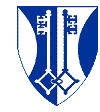
Liberal Arts Programme
Accommodation and Welfare
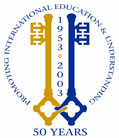

|
At St. Clare's you can choose from a variety of high quality accommodation options:
College residential accommodation is provided in four houses specifically for adult students. You may choose a meals included residential arrangement (breakfast and dinner every day; lunches Monday to Friday) or self-catering (with access to a kitchen, although you can eat meals in College if you wish). Each house has a house manager, available to welcome students and to help you settle in. Living in a College house is a great way to make new friends, often with different cultural backgrounds. We have twin rooms (when you share with another student, usually of a different nationality), and some single rooms. Homestay accommodation is arranged in private homes, with breakfast and dinner eaten in the house. Living in a private home is an excellent way to see more of British life and culture at first hand. Our hosts are carefully chosen, and the houses are visited regularly to ensure that high standards are maintained. Some students may prefer to stay in a hotel or guesthouse. We can help with arrangements.
|
||||||
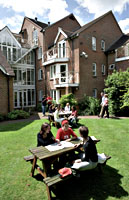 |
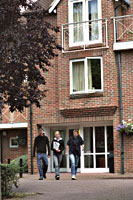 |
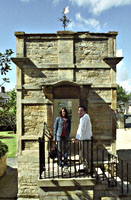 |
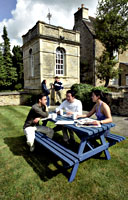 |
|||
Welfare
- St. Clare's pays great attention to the care and welfare of students.
- Each student is assigned to a Personal Tutor, a particular member of staff who takes a particular interest in and responsibility for your welfare.
- The Student Services Officer is available to assist with issues relating to accommodation.
- The College nurse is available to students on weekdays, and on some evenings.
- Students are registered with a local medical centre, and doctors from the centre will see you by appointment.
- Regular academic monitoring meetings are held with senior academic staff to review progress.
Academic
assessment meetings
Academic meetings take place three times per semester, and are designed
to help, support and encourage you to fulfil your potential, both academically
and beyond the classroom. They take the form of confidential, individual
meetings. The process begins with the Course Registration Day sessions
that are held at the start of the orientation period. What are known as
'Interim' interviews are then held five to six weeks into the semester
to monitor progress. At mid-semester you will receive a written report
for each of your courses. At the end of semester, final assessment meetings
are held.
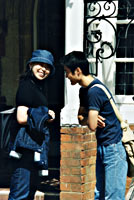 |
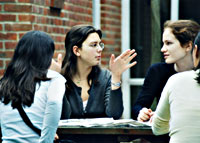 |
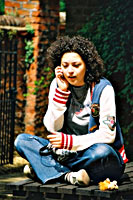 |